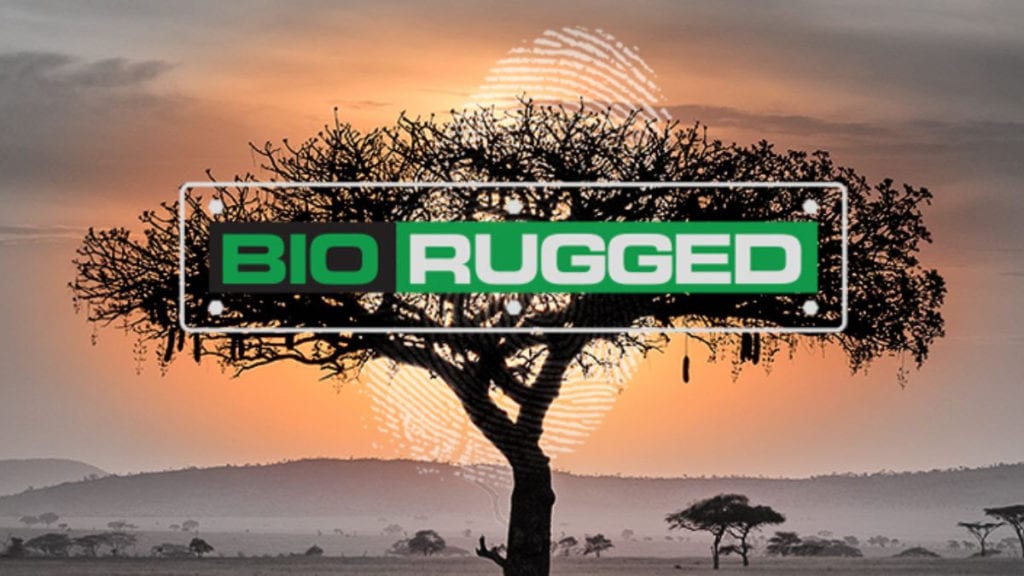
Founded in 2012, BioRugged has quickly established itself as a leading provider of heavy-duty biometric devices that can be used in a wide range of environments. The company’s newest devices, the BioWolf 60 and BioWolf 60P, the Ruggbo 20R, and the Mark 3 Biometric Enrollment and Verification Kit, have further elevated BioRugged’s profile as the company seeks to expand into new markets beyond Africa, where it has established itself as a prominent solutions provider.
Those expansionary ambitions are made perfectly clear in a new interview between FindBiometrics VP of Digital Content Susan Stover and BioRugged’s COO, Hof Retief, who highlights the company’s efforts in targeting Europe as its next major market focus. The two also discuss how BioRugged’s solutions have helped to address evolving demand, the company’s growth in the African and Asian regions, and the emerging market area of healthcare biometrics. Read the full interview below to get the latest insight’s from a fast-growing biometrics specialist.
Read our full interview with Hof Retief, COO, BioRugged:
Susan Stover, VP of Digital Content, FindBiometrics: Could you please give our readers a brief overview of BioRugged?
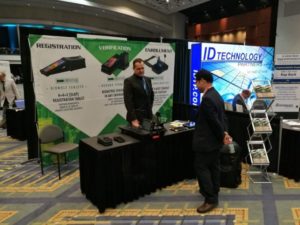
Hof Retief, COO, BioRugged: BioRugged was founded and became an official company in 2012. A couple of years prior to that we were creating ODM hardware devices for Telcos in Africa. In 2014, we launched our own brand under the BioRugged logo, and we mainly supplied KYC (Know Your Customers) biometric equipment. Over the last couple of years, we have been branching out into election equipment, border control, national ID card, national census and police. And as our company grew and our market expanded, so did our portfolio.
BioRugged is firmly on the design and manufacturing side of solutions. We work with various organizations – what we call “Primes” – in the industry and these are companies that have a physical presence in the target country. They will contact us directly or we will meet at exhibitions to discuss their project needs. Once the project needs have been identified, we use a technique that we call “What, Where, Who and Why”. So, who will use the equipment, where will it be used, what will the data be used for, and why is this project being initiated? Once we have the 4 W’s in the bag from there, we can start to design the needed project and bring our software partners into our ecosystem. This approach assists our partners and they don’t have to shop around. Whatever they need in the project we can fulfill for them.
FindBiometrics: It all depends on what the need is and that is a really critical thing across a vertical.
BioRugged: It is the same way we all look different across the globe, we all do business differently and we all have different needs, not only from a cost or a technical perspective but also in how you implement your solution. For example, there are many cultures where it is very rude to look someone in the eye or to take their hand or to hold their finger, and as a provider you need to be aware of these scenarios and plan accordingly
You have to be very hands-on in each project to know how to get around these unique challenges in each country to make each project successful not only from a technical perspective but also from the view of the people.
FindBiometrics: Absolutely, you aren’t working with a one-size-fits-all approach. As you said, it is personal and you really seem to have your finger on the pulse of what is going on in the industry.
BioRugged: To supply a biometric identifier is a bit of yourself that you are giving away. It is not like a signature or a deposit of funds – it is a bit of yourself that you are giving to someone else so they can use this information to identify you. It is a rather personal business.
All our clients and partners travel with us on a long road – it takes a long time to trust a vendor in our industry. Not only are the financial impacts big on these projects, but also the service we provide is mission-critical for the country. BioRugged has been fortunate that once we have entered into a partnership, we have never lost a client. If a partner has used us in the past, they are still using us. We try to accommodate our partners so they are confident and feel safe in using us because it’s not only our name that’s on stage, but it is their name as well.
FindBiometrics: You’ve also recently launched some new products with a new generation of 442 slap scanner tablets, including the BioWolf 60. Can you expand a little bit more and tell us about these products and their applications?
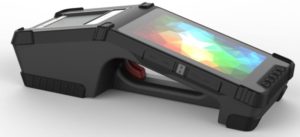
BioRugged: For a long time clients only asked us for “fingerprint biometrics”; BioRugged would then work togetherwith our software partners to manufacture and install the solution.
Over the years, people have started to realize that just “fingerprint” isn’t good enough. If you want to build an AFIS or biometric database that you can actually use, you need all ten fingers; you need very good quality images and you have to store the print in an efficient way.
It seems over the last six months to a year everyone started realizing they need 442 slap fingerprint readers, especially in mobile units to capture all 10 fingers. BioRugged has developed two cost-effective Android and Windows tablets with integrated FAP 60 (442) scanners. This does make them a bit bulky; but they are less prone to theft but are still easy to transport and use.
Our tablets will now be marketed to the higher-end KYC, biometric elections, border control, police, national ID and census markets where people require mass rollouts but they have a tight budgets. Due to the cost point and the fact that it comes with a carry bag and strap, we believe they will find a good home in many countries.
FindBiometrics: When we last spoke with you at ID4Africa last month in Johannesburg we talked about your impressive impact in the African market. Where is BioRugged looking to next in terms of growth and expansion?
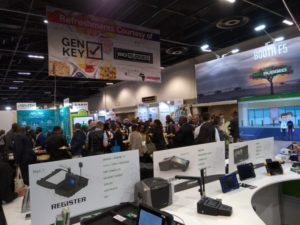
BioRugged: Over the last two years we have opened offices in Kenya and Congo supplementing our current offices in Shenzhen, Hong Kong, South Africa and Nigeria. Our next step is to take aim at the European market with the new border control regulations coming in the next year which require all non-citizens to do the 442-slap fingerprint when entering into the European territory.
Keeping this in mind, we decided that our next expansion will be in Portugal as it is a nice sunny country, and we plan to open an assembly line to manufacture our European BioWolf 442 Tablets in Europe. The timeline will be 2019-2020.
FindBiometrics: It looks like you are moving quite quickly. We’re seeing growth in our industry like never before, especially when it comes to border control, law enforcement, financial and government sectors. What are the key markets that BioRugged is active in?
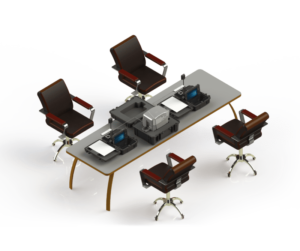
BioRugged: This builds on our previous discussion about the industry moving towards higher quality fingerprint requirements. There are two driving points in biometrics: one is need, in that we need to get high-quality clean biometrics into our back-end systems, and then the other one is budget
Our market growth started in the KYC sector, where we did very well with over a hundred thousand units in the field. From there, it went to the elections which are now starting to become biometric elections; we have to both enroll the customer and then confirm with biometrics when they are voting. The industry is also expanding on biometric census databases – what you call a “biometric for life”. Almost from when you are born to when you pass away, you can trace your history with your biometric: Where did you study? What did you study? What is my criminal record?
The next industry that we are looking at is healthcare, because in some instances the patient can’t talk or communicate, so we can use their biometric to confirm their identity. And then the second biggest preventative measure in healthcare is fraud. We have had clients who have pointed out the birth of a child to a single woman three times in one year. We have either very special people here or somebody is committing fraud!
So, this all builds on one another. First you must get your population inside the biometric system. Once it is in the system, you can use this data, and the use cases can go from banking to healthcare to criminal to education and so forth. The more governments that bring online their national biometric databases, the more growth opportunities we see across the market for long-lasting, reasonably priced, made for rural areas or fieldwork devices.
FindBiometrics: It sounds like you have really taken into consideration the ease of use and various use cases after getting a population into the system and the whole range of applications for your technology, which is amazing. What can we expect next from BioRugged?
BioRugged: Next up for us is to open our European office and then to push our 442 tablets into the market. From Europe we want to go into the US, because we have been contacted by various US State departments – especially in the south of America where they do have the influx of refugees. These people must be enrolled and they have to be categorized for the government to be able to look after them. To provide aid packages, clean sanitation and facilities to people, you have to be able to identify them, not only to prevent fraud but to ensure you are giving the right person aid. The southern area of the USA is a very harsh environment to work in. This is right up our alley as we have used the harsh environments of Africa to develop our devices to be able to use them in harsh environments across the globe.
FindBiometrics: Thank you so much for joining me today and it was really great to hear about your company and we’re really looking forward to profiling what is next for you over the next few years.







Follow Us